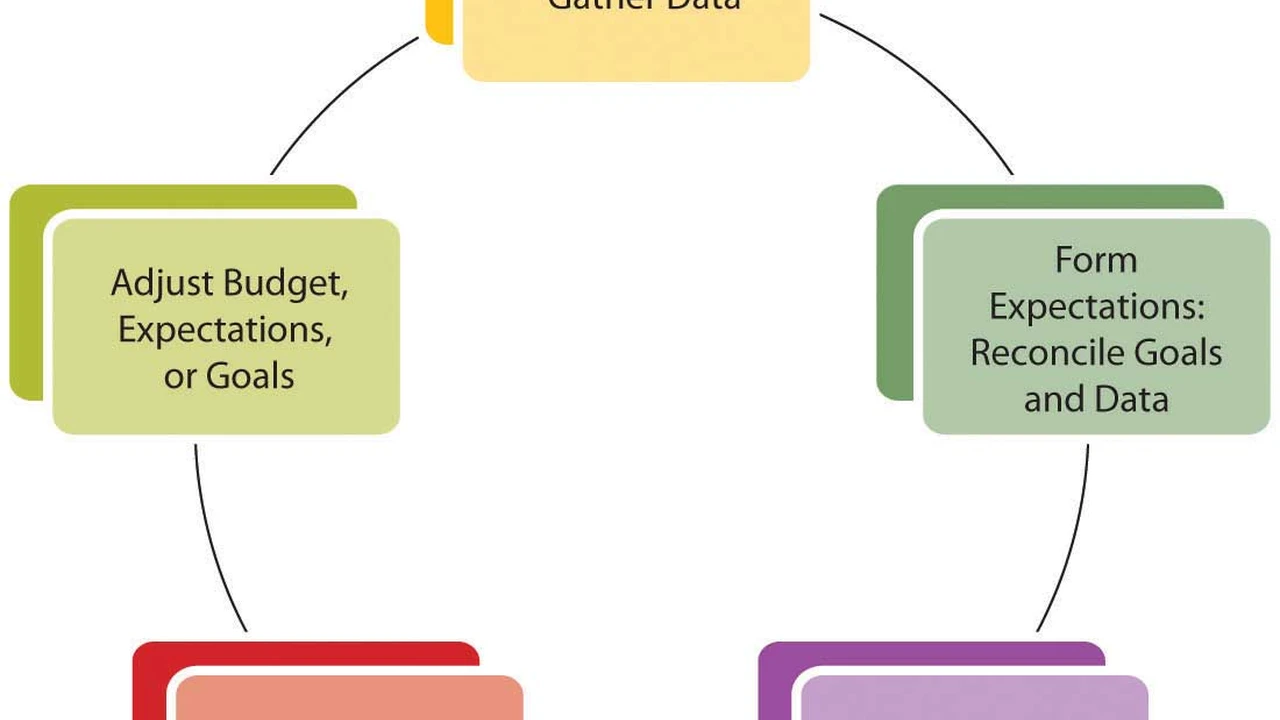5 Key Differences in Tax Systems US vs Southeast Asian Countries
Compare the fundamental differences between the US tax system and those of key Southeast Asian countries. Understand how these variations impact expats, investors, and businesses operating across these regions.

5 Key Differences in Tax Systems US vs Southeast Asian Countries
Hey there! If you're a US citizen, an expat, or someone looking to do business in Southeast Asia, you know that taxes can be a real headache. It's not just about paying your dues; it's about understanding two completely different worlds of taxation. The US tax system is notoriously complex, especially with its worldwide income taxation, while Southeast Asian countries often have their own unique approaches, sometimes designed to attract foreign investment. Let's dive into the five most crucial differences you need to be aware of.
1. Worldwide vs Territorial Taxation Understanding the Core Principle
This is probably the biggest and most fundamental difference. The United States operates on a worldwide taxation system. What does that mean for you? Simply put, if you're a US citizen or a green card holder, the IRS wants a piece of your income, no matter where in the world you earned it. Whether you're working in Singapore, running a business in Thailand, or investing in Vietnam, your global income is subject to US tax. This is a huge deal for expats, as it often leads to complex filing requirements and the need to navigate potential double taxation.
On the flip side, most Southeast Asian countries, like Singapore, Thailand, Malaysia, and Vietnam, primarily use a territorial taxation system. This means they generally only tax income earned within their borders. So, if you're a resident of Thailand, for example, and you earn income from a source outside of Thailand that isn't remitted into Thailand, it might not be subject to Thai income tax. This can be a significant advantage for foreign residents and businesses, as it simplifies their tax obligations to the host country.
However, there are nuances. Some countries might tax foreign-sourced income if it's remitted into the country. For instance, Malaysia generally taxes foreign-sourced income only when it's received in Malaysia. Singapore, while largely territorial, has specific rules for certain types of foreign income. It's never a simple black and white, but the core principle of where income is sourced for tax purposes is a massive differentiator.
2. Tax Rates and Brackets Personal Income Tax Comparison
When it comes to how much you actually pay, the tax rates and brackets can vary wildly. The US has a progressive income tax system with numerous brackets, ranging from 10% to 37% for federal income tax, plus state income taxes in many states. This means the more you earn, the higher percentage of your income goes to taxes. There are also various deductions, credits, and exemptions that can significantly impact your final tax bill.
Southeast Asian countries also have progressive tax systems, but their rates and brackets can be quite different. Let's look at a few examples:
- Singapore: Known for its low tax rates, Singapore's personal income tax ranges from 0% to 24%. This makes it a very attractive destination for high-income earners and businesses.
- Thailand: Personal income tax rates in Thailand range from 0% to 35%. While the top rate is comparable to the US, the lower brackets can be more favorable.
- Malaysia: Malaysia's personal income tax rates go from 0% to 30%.
- Vietnam: Vietnam has a progressive tax system with rates from 5% to 35%.
- Philippines: The Philippines' personal income tax rates range from 0% to 35%.
What does this mean for you? If you're a US expat, you'll likely be trying to utilize mechanisms like the Foreign Earned Income Exclusion (FEIE) or foreign tax credits to offset your US tax liability against taxes paid in your host country. The lower the tax rate in your Southeast Asian country of residence, the more likely you might still owe taxes to the US, even after applying these benefits. Conversely, if you're earning a high income in a country with a lower tax rate like Singapore, you might find yourself in a better net position compared to earning the same income in the US, assuming you effectively manage your US tax obligations.
3. Social Security and Healthcare Contributions Mandatory vs Optional Systems
In the US, a significant portion of your paycheck goes towards mandatory contributions for Social Security and Medicare. These are federal programs designed to provide retirement, disability, and healthcare benefits. For employees, these are typically split between the employer and employee, while self-employed individuals pay both halves (self-employment tax).
Southeast Asian countries have varying approaches to social security and healthcare contributions. Many have their own national social security schemes, but they might differ significantly from the US system in terms of scope, mandatory nature for foreigners, and contribution rates.
- Singapore: Has the Central Provident Fund (CPF), a comprehensive social security savings scheme. However, it's generally only mandatory for Singaporean citizens and permanent residents. Foreigners typically don't contribute to CPF, which can mean a higher take-home pay but also means they need to arrange their own retirement and healthcare savings.
- Thailand: Has a Social Security Fund (SSF) that covers sickness, maternity, disability, death, child allowance, old age, and unemployment. Foreign employees working in Thailand are generally required to contribute.
- Malaysia: Operates the Employees Provident Fund (EPF) for retirement savings and SOCSO for social security. Foreign employees are generally required to contribute to SOCSO, but EPF contributions for foreigners are often optional or subject to specific conditions.
- Vietnam: Has a social insurance system that foreign employees are increasingly required to contribute to, covering sickness, maternity, occupational diseases, work accidents, retirement, and death.
For US expats, this creates a unique challenge. You might be contributing to a social security system in your host country while still potentially being liable for US self-employment taxes if you're self-employed, or facing the 'totalization agreement' complexities if you're employed. Totalization agreements are designed to prevent double taxation of social security benefits and ensure coverage, but the US only has them with a limited number of countries, and many Southeast Asian nations are not on that list. This means you could be paying into two systems without necessarily getting full benefits from both.
4. Capital Gains and Investment Taxation How Profits are Taxed
Investment income is another area where the tax systems diverge. In the US, capital gains from the sale of assets (like stocks, real estate, or mutual funds) are taxed differently depending on how long you held the asset. Short-term capital gains (assets held for one year or less) are taxed at ordinary income tax rates, while long-term capital gains (assets held for more than one year) are taxed at preferential rates (0%, 15%, or 20% for most taxpayers). There's also a net investment income tax (NIIT) for higher earners.
Southeast Asian countries have a variety of approaches to capital gains and investment taxation:
- Singapore: Generally does not impose capital gains tax. This is a massive draw for investors and entrepreneurs. However, if you're in the business of trading assets, those profits might be considered income and taxed accordingly.
- Thailand: Capital gains from the sale of shares in the Stock Exchange of Thailand are generally exempt for individuals, but there are exceptions for foreign companies and certain types of gains. Capital gains from real estate are subject to specific taxes.
- Malaysia: Generally does not tax capital gains for individuals, except for gains from the disposal of real property and shares in real property companies, which are subject to Real Property Gains Tax (RPGT).
- Vietnam: Capital gains from the transfer of securities are generally taxed at a flat rate, and gains from real estate transfers are also subject to specific taxes.
- Philippines: Capital gains from the sale of shares not traded on the stock exchange are taxed at a flat rate, and gains from the sale of real property are subject to a final tax.
For US citizens, even if your host country doesn't tax capital gains, the US still will, thanks to its worldwide taxation principle. This means you'll need to report all your global investment gains to the IRS. You might be able to use foreign tax credits if you paid capital gains tax in your host country, but if your host country has no capital gains tax (like Singapore), you'll likely owe the full US capital gains tax. This is a critical point for expats with investment portfolios.
5. Tax Compliance and Reporting Requirements The Bureaucracy Battle
Both the US and Southeast Asian countries have their share of bureaucratic hurdles when it comes to tax compliance, but the nature of these hurdles can differ significantly. The US is famous (or infamous) for its complex tax code, requiring extensive reporting, especially for those with foreign assets or income.
Key US reporting requirements for expats include:
- Form 1040: Your annual income tax return, reporting all worldwide income.
- FinCEN Form 114 (FBAR): Report of Foreign Bank and Financial Accounts. If you have foreign financial accounts with an aggregate value exceeding $10,000 at any point during the year, you must file this. This is a non-tax form but carries hefty penalties for non-compliance.
- Form 8938 (FATCA): Statement of Specified Foreign Financial Assets. If your foreign financial assets exceed certain thresholds (which are quite high for expats), you need to file this under the Foreign Account Tax Compliance Act.
- Form 5471, 8865, etc.: If you own foreign corporations or partnerships, the reporting requirements become even more complex.
Southeast Asian countries also have their own compliance requirements, which can include:
- Annual Income Tax Returns: Most countries require residents to file an annual income tax return.
- Specific Reporting for Foreign Income/Assets: While generally territorial, some countries might require reporting of foreign income if it's remitted, or specific declarations of foreign assets for certain purposes.
- Business Registration and Compliance: For businesses, there are extensive requirements for registration, corporate tax filings, VAT/GST reporting, and payroll taxes.
The challenge for expats is managing both sets of compliance. You need to understand the local rules to avoid issues with the tax authorities in your host country, and simultaneously navigate the intricate web of US international tax laws to remain compliant with the IRS. This often necessitates the help of tax professionals who specialize in both US and international tax law.
Navigating the Tax Maze Tools and Services for Expats and Businesses
Given these complexities, relying on professional help and specialized tools is not just a good idea, it's often essential. Here are some recommendations for services and software that can help you manage your tax obligations across the US and Southeast Asia:
Tax Preparation Services for US Expats Global Tax Solutions
For US expats, finding a tax preparer who understands both US tax law and the nuances of foreign tax credits, FEIE, FBAR, and FATCA is crucial. Here are a few highly-regarded services:
-
Greenback Expat Tax Services
Description: Greenback specializes exclusively in US expat tax preparation. They have a team of CPAs and EAs who are experts in international tax law. They offer personalized service, ensuring you maximize your foreign tax credits and exclusions. They are particularly good for individuals with complex situations, such as foreign businesses, rental properties, or significant investment income.
Use Case: Ideal for US citizens living in Southeast Asia who need comprehensive tax preparation, FBAR filing, and advice on optimizing their tax situation to minimize US tax liability.
Comparison: More specialized than general tax services like TurboTax, offering expert guidance tailored to expat needs. Their pricing is generally higher than DIY software but provides peace of mind and potential tax savings.
Estimated Price: Starts around $500 for basic expat returns, increasing with complexity.
-
Expat Tax Professionals
Description: Similar to Greenback, Expat Tax Professionals focuses solely on US expat taxes. They offer a streamlined process, often with a dedicated tax preparer. They are known for their responsiveness and ability to handle various expat scenarios, including those with foreign pensions or complex investment structures.
Use Case: Excellent for expats seeking reliable and efficient tax preparation with a focus on compliance and maximizing deductions.
Comparison: Strong competitor to Greenback, often coming down to personal preference for their specific service model. Both offer high-quality, specialized services.
Estimated Price: Comparable to Greenback, starting from $450-$550.
Local Tax Advisors for Southeast Asian Countries In-Country Expertise
While US expat tax services handle your US obligations, you'll often need local expertise for your host country's tax compliance. Many international accounting firms have offices across Southeast Asia, but local firms can also be very effective.
-
PwC, Deloitte, EY, KPMG (Big Four)
Description: These global accounting giants have a strong presence in major Southeast Asian cities like Singapore, Bangkok, Kuala Lumpur, Ho Chi Minh City, and Manila. They offer comprehensive tax advisory services for individuals and businesses, including local tax compliance, international tax planning, and transfer pricing.
Use Case: Best for large businesses, high-net-worth individuals, or those with very complex cross-border transactions who need integrated global and local tax advice.
Comparison: Offer a full suite of services and global reach, but come with a premium price tag. Their expertise is unparalleled for complex corporate structures.
Estimated Price: Varies widely based on service, often hourly rates starting from $200-$500+ per hour.
-
Local Boutique Tax Firms (e.g., Accounting & Corporate Services Singapore, Tilleke & Gibbins Thailand)
Description: Many smaller, reputable local firms specialize in tax and accounting for foreigners and foreign businesses in their respective countries. They often have a deep understanding of local regulations, cultural nuances, and can be more cost-effective than the Big Four.
Use Case: Ideal for small to medium-sized businesses, individual investors, or expats who need specific local tax advice and compliance without the global firm overhead.
Comparison: More affordable and often more agile than the Big Four, with a strong focus on local expertise. May not have the same global network for integrated international tax planning.
Estimated Price: Varies by country and service, but often more competitive, e.g., $100-$300 per hour or fixed fees for specific services.
Accounting Software for Small Businesses and Freelancers Streamlining Your Books
For managing your finances and preparing for tax season, good accounting software is invaluable, especially if you're self-employed or run a small business in Southeast Asia.
-
Xero
Description: Xero is a cloud-based accounting software popular globally, including in Southeast Asia. It's user-friendly, offers excellent bank reconciliation features, invoicing, expense tracking, and integrates with many third-party apps. It's suitable for small businesses and freelancers.
Use Case: Managing day-to-day bookkeeping, invoicing clients (both local and international), tracking expenses, and generating financial reports for tax preparation. Its multi-currency features are great for international operations.
Comparison: Often preferred over QuickBooks Online by some users for its cleaner interface and ease of use, especially for non-accountants. Strong ecosystem of integrations.
Estimated Price: Plans range from $12 to $70 per month.
-
QuickBooks Online
Description: A very popular and robust cloud accounting solution. QuickBooks Online offers comprehensive features for invoicing, expense tracking, payroll (with add-ons), inventory management, and detailed reporting. It's widely used and supported by many accountants.
Use Case: Small to medium-sized businesses needing a full-featured accounting solution. Good for tracking profit and loss, balance sheets, and preparing data for both US and local tax filings.
Comparison: A market leader with extensive features. Can be more complex for beginners than Xero, but offers deeper functionality for growing businesses. Integrates well with many US tax software.
Estimated Price: Plans range from $30 to $200 per month.
-
Wave Accounting
Description: Wave offers free accounting, invoicing, and receipt scanning software, with paid services for payroll and payment processing. It's an excellent option for freelancers, sole proprietors, and very small businesses looking to keep costs down.
Use Case: Basic bookkeeping, invoicing, and expense tracking for individuals or micro-businesses with straightforward financial needs. Helps organize data for tax reporting without a monthly fee for core accounting.
Comparison: The best free option for basic accounting. Lacks some of the advanced features and integrations of Xero or QuickBooks, but perfect for getting started or for minimal requirements.
Estimated Price: Free for accounting, invoicing, and receipt scanning. Payroll and payment processing are paid services.
Understanding these five key differences is just the beginning. The world of international taxation is constantly evolving, and staying informed is your best defense against unexpected tax bills and compliance issues. Whether you're an individual expat or a business looking to expand, getting the right professional advice and utilizing the right tools will save you a lot of headaches and potentially a lot of money.
:max_bytes(150000):strip_icc()/277019-baked-pork-chops-with-cream-of-mushroom-soup-DDMFS-beauty-4x3-BG-7505-5762b731cf30447d9cbbbbbf387beafa.jpg)






